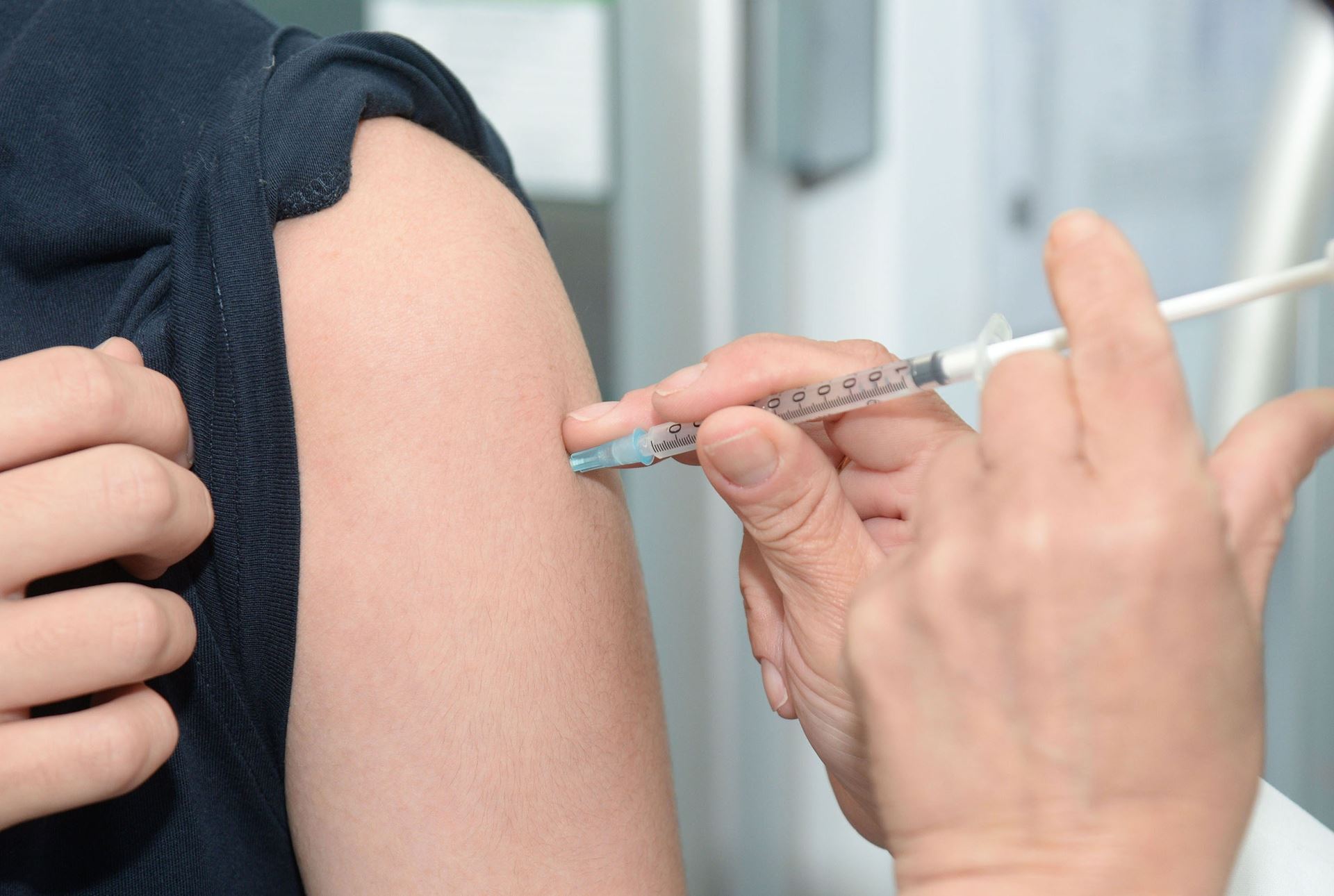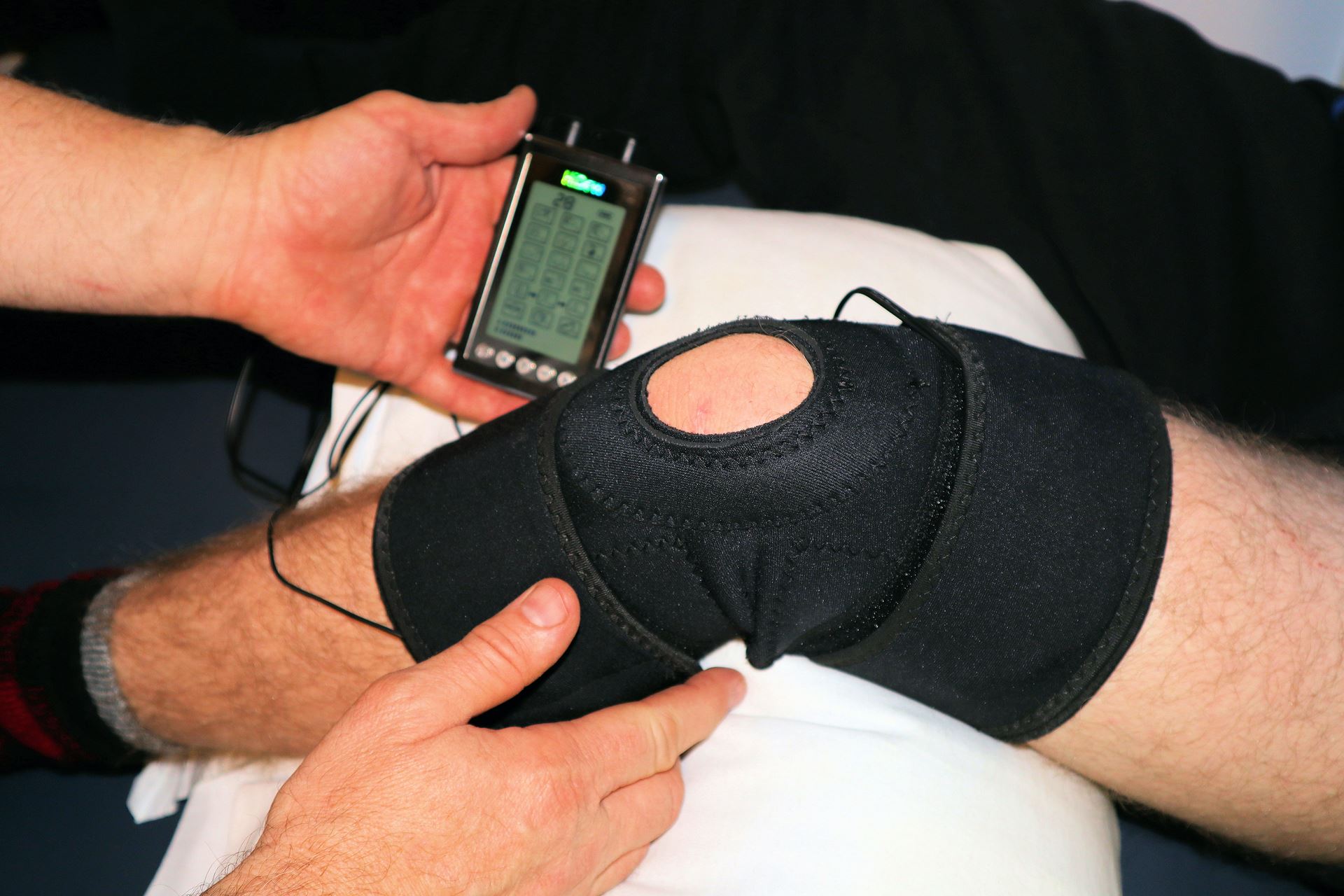Clinics We Offer

Flu Clinics
Flu vaccination is available every year on the NHS to help protect adults and children at risk from flu and its complications. Flu can be unpleasant, but if you're otherwise healthy, it'll usually clear up on its own in about a week. But flu can be more severe in certain people, such as:
- anyone aged 65 and over
- pregnant women
- children and adults with an underlying health condition (such as long-term heart or respiratory disease)
- children and adults with weakened immune systems
Anyone in these risk groups is more likely to develop potentially serious complications of flu, such as pneumonia (a lung infection), so it's recommended that they have a flu vaccine every year to help protect them.

Joint Injection Clinic
We offer joint injections for a number of conditions where you have not responded to other forms of treatment.
A steroid injection is usually given into a joint or soft tissue to help reduce pain when joints may be swollen and tender. We usually use a steroid and local anaesthetic mix and inject around the affected area/joint. The injection helps reduce pain and as a result improves mobility and function.
Joint injections are done for a number of conditions – osteoarthritis, frozen shoulder, carpal tunnel and many other conditions.
Due to the current circumstances, we are asking patients to review and complete the Consent Form before they attend their appointment with the joint clinic.
Cervical Screening (Smear Test)
What is cervical screening?
Cervical screening, or the “smear test”, is a routine health check that identifies potentially harmful cells and changes on the cervix. Cervical screening is not a test for cancer but catching any changes early can reduce your risk of developing cervical cancer. Cervical cancer kills two women every day. Regular screenings can help reduce that number, which is why it’s so important you attend your screening when invited.
Who is the screening for?
If you are a woman, or someone with a cervix, you will be invited for your cervical screening at regular intervals:
- If you’re aged 25-49, you’ll be invited every 3 years
- If you’re aged 50-64, you’ll be invited every 5 years
It is advisable you have regular cervical screenings, but ultimately, it is your choice whether you attend.
What happens during cervical screening?
Your screening will only take a minute or two, the whole appointment usually takes around ten minutes. During your screening, a nurse will give you a private space in which to undress from the waist down. They will also give you a paper sheet to cover yourself and will ask you to lie on the bed. They’ll then place a speculum (a hollow cylinder with a rounded edge) in your vagina. This helps them see your cervix. Then, using a small brush, they’ll gently gather some cells from your cervix. They’ll remove the speculum, put your sample in a pot and send it off for testing. You’ll get your results around two weeks later.
Your appointment
The nurse is there to answer any questions or concerns you may have before your appointment, so please talk to them if you’re feeling nervous. There are also a range of things you can do to put yourself at ease during your screening:
- If you’d like, you can take a trusted friend or family member with you
- Wear a long, loose dress or skirt. It may make you feel more covered during your screening
- Take long, deep breaths to help you relax
- Listen to a podcast or some music during your screening to put you at ease
- Speculums come in a range of different sizes. It is a rounded cylinder which is gently opened so nurses can see your cervix. You may want to discuss the size of the speculum with the nurse before you have the test.
If you’re due to have a cervical screening, you’ll receive a letter in the post. Don’t ignore it, book your cervical screening with Reception today.
If you missed your previous screening, contact Reception to book an appointment today.
How to book your cervical screening appointment
If you are due a cervical screening you can call reception and book an appointment with your GP or Practice Nurse.
Diabetes Clinics
More than 200,000 people are diagnosed with Type 2 diabetes every year – and that means the risk of serious health complications and early death. Modern life can make it hard to be healthy but for many people Type 2 diabetes can be prevented by making small lifestyle changes.
Marie Rouse, our Advanced Nurse Practitioner and Diabetes Specialist Nurse, runs diabetes clinics every Monday, Tuesday and Wednesday. These take place at both our Histon and Cottenham surgeries. Please speak to reception to book an appointment.

Family Planning Clinics
We advise on all types of contraception. You can see any of the doctors or the nurse for advice during normal surgery hours, please speak to Reception to book an appointment.
Coil and cap fittings need a special appointment, Reception staff will be able to advise on clinic availability.

Maternity Care
We provide antenatal and postnatal care with the help of the Community Midwife.
The Midwife is also able to offer pre-conception advice.

Practice Nurse Clinics
The practice nurses are based in the surgery and can be seen by appointment. They provide a wide range of treatments including:
- Immunisations
- Blood test
- Health check
- Contraceptive advice (including emergency contraception)
- Travel health advice and Travel Immunisations
They are also able to give advice for some minor illnesses (ask at reception for details).

Quitting Smoking
If you’re a smoker, giving up is the single most valuable step you can take to improve your health. It can improve your lifestyle and finances too! Please book an appointment with one of our practice nurses to discuss quitting smoking. The NHS can help you to quit using a variety of support tools and advice.
When you go smoke free, you are up to four times more likely to succeed if you use NHS support and stop smoking medicines such as patches or gum to manage your cravings.
Useful websites are:
Page created: 06 December 2022